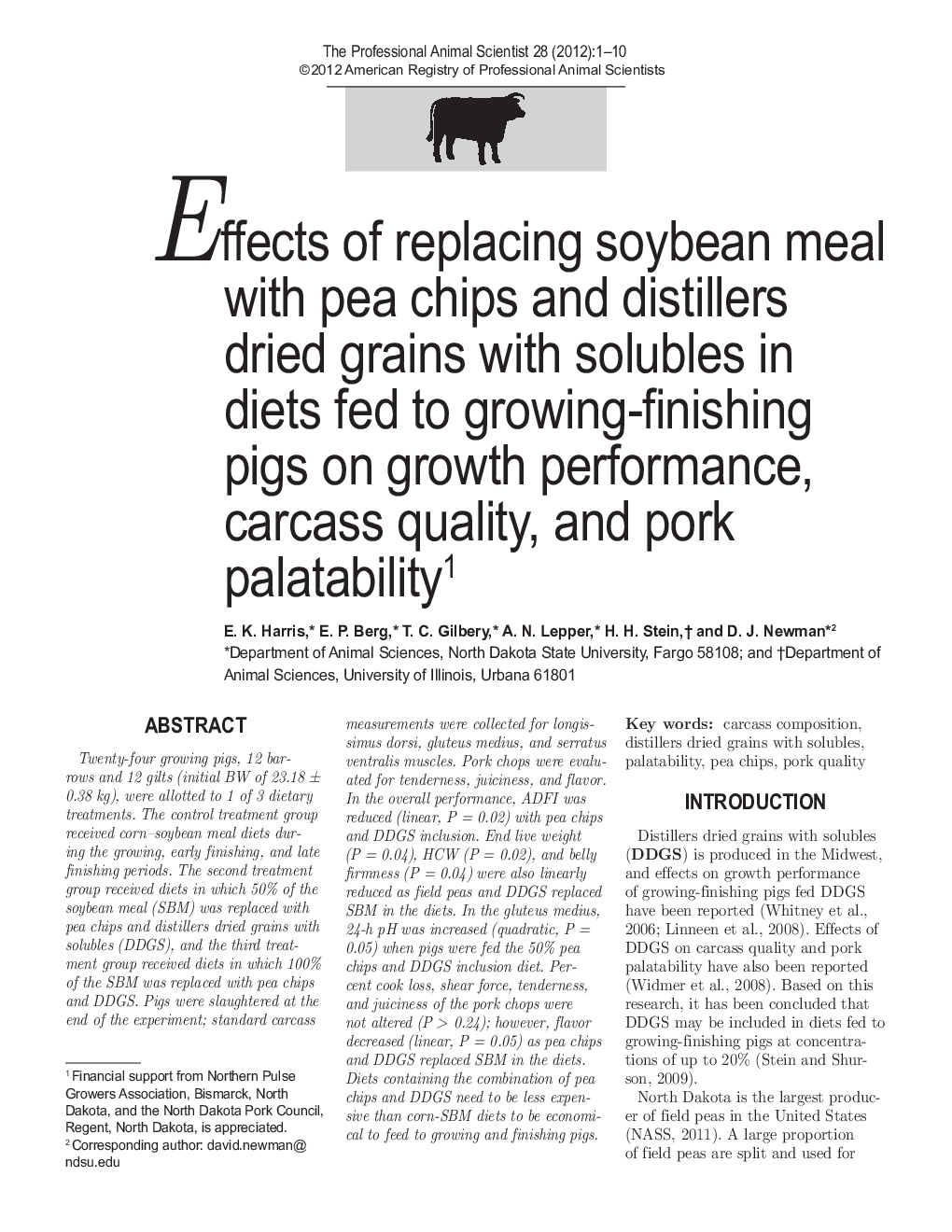| Article ID | Journal | Published Year | Pages | File Type |
|---|---|---|---|---|
| 2453923 | The Professional Animal Scientist | 2012 | 10 Pages |
Abstract
Twenty-four growing pigs, 12 barrows and 12 gilts (initial BW of 23.18 ± 0.38 kg), were allotted to 1 of 3 dietary treatments. The control treatment group received corn-soybean meal diets during the growing, early finishing, and late finishing periods. The second treatment group received diets in which 50% of the soybean meal (SBM) was replaced with pea chips and distillers dried grains with solubles (DDGS), and the third treatment group received diets in which 100% of the SBM was replaced with pea chips and DDGS. Pigs were slaughtered at the end of the experiment; standard carcass measurements were collected for longissimus dorsi, gluteus medius, and serratus ventralis muscles. Pork chops were evaluated for tenderness, juiciness, and flavor. In the overall performance, ADFI was reduced (linear, P = 0.02) with pea chips and DDGS inclusion. End live weight (P = 0.04), HCW (P = 0.02), and belly firmness (P = 0.04) were also linearly reduced as field peas and DDGS replaced SBM in the diets. In the gluteus medius, 24-h pH was increased (quadratic, P = 0.05) when pigs were fed the 50% pea chips and DDGS inclusion diet. Percent cook loss, shear force, tenderness, and juiciness of the pork chops were not altered (P > 0.24); however, flavor decreased (linear, P = 0.05) as pea chips and DDGS replaced SBM in the diets. Diets containing the combination of pea chips and DDGS need to be less expensive than corn-SBM diets to be economical to feed to growing and finishing pigs.
Related Topics
Life Sciences
Agricultural and Biological Sciences
Animal Science and Zoology
Authors
E.K. Harris, E.P. Berg, T.C. Gilbery, A.N. Lepper, H.H. Stein, D.J. Newman,
